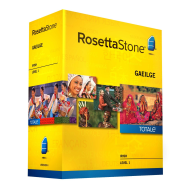Irish Expressions
The Irish can string words together like no other group of people on this planet and this is why Irish people are known for "bua na cainte", which is Irish for "gift of the gab." Irish sayings are as much known for their wit and charm as for their ability to get to the heart of a situation with a simple saying. Today, Irish sayings and expressions are used in a variety of ways, from wedding, birthday and funeral toasts to wedding ring inscriptions to being used in advertising copy. There are many Gaelic words that have found their way into the mainstream, as well as English translations. The Irish word "slainte" is prounced "slawn-cheh" and means cheers or good health. This word is used most often in wedding toasts or an event that calls for a clinking of glasses. "Craic" is a Gaelic word meaning party or good time, is considered Irish slang and it's pronounced "crack." You will hear many different phrases in Ireland that incorporate craic into it, such as "Isn't this good craic?" which can mean "Isn't this a great time?" The Irish phrase "o m'anam" means "from my heart. It is pronounced "oh muh anim." "Eireann go Brach!" is one of the most famous Irish sayings you will hear. It is often shouted during Irish sports events and it means "Ireland forever!", but it can be used anytime Irish patriotism is required. Another recognizable Irish expression is "may the road rise to meet you", which is derived from the Gaelic expression "go n-eiri an bothar leat," which literally means "may success be with you." One of the most recognized Irish sayings of all might be "céad míle fáilte," pronounced "cade meelah foyle-ta", which translates to the warm personal greeting "a hundred thousand welcomes." This beautiful expression is descriptive of the Irish more than any other. It is a common welcome sign for many Irish towns. The Irish saying "tóg go bog é" means to take it easy and it is pronounced "tóg guh bug ae." It is a very well-known phrase In Ireland. If you would like to learn one phrase to use in Ireland, saying thank you in Irish would come in handy as you make your way around the country. "Go raibh maith agat" literally translates to "may you have goodness." It is pronounced "GUR-uv MA uh-gut." One of the most popular ways to say you're welcome is "tá fáilte romhat." The expression is pronounced "taw FAWL-cheh ROH-ut." Most people living in Ireland will know how to say hello in Gaelic, which is "dia duit", pronounced "dee-ah gwit." It means hello or God to you. The proper response is to say "Dia is Muire dhuit" which means "God and Mary to you." Pronounced "dee-ah iss mwir-eh gwit." The following words, phrases and sayings are so uniquely Irish that they are considered to be Irish sayings, Irish slang or Irish in nature. If you are visiting Ireland, this might be the one word you will take home. "Grand." This one word has a lot of uses, but the most popular use of the word "grand" is a response to someone asking how you are feeling or doing or as a response to a question that you might use the word "good" as a response. If you give someone a good scare, you have "put the heart crossways in someone." You can also use it personally, as "You just put the heart crossway in me by jumping out of the doorway at me." When someone asks you to "wet the tea" you had better get the water boiling and some tea bags brewing pronto! Someone is asking you to get the tea started. If you are "wrecked," you need to go to sleep really soon because you are very tired. Irish people use this word to describe how they feel the next day after a fun night out, as well. If a person in Ireland refers to someone as "away with the fairies" you can be assured that the person is not too well in touch with reality. This phrase comes from old Gaelic folklore stories that refer to people who visited the Sidhe (fairies) thinking that their visit only lasted for a few hours, but when they went back home, the visit had actually lasted for years. Who is not familiar with the pot o' gold at the end of the rainbow? The Irish are known for their luck, and it is reflected in one of the most well-known Irish sayings, "luck of the Irish", which translated into Gaelic is "an t-áadh na nGael." The Irish lay claim to this poignant saying, "tir gan teanga, tir gan anam". Pronounced "cheer gon chong-gah, cheer gon on-om," it means "a country without a language, a country without a soul." The final Irish saying quickly sums up how the Irish feel about where their language fits into the world. The Gaelic saying "Is fearr Gaeilge briste, na Bearla cliste" means "broken Irish is better than clever English."
Disclaimer: LittleShamrocks.com is an affiliate website that receives commissions from sales of the products listed. We have purchased and sampled many, but not all, of the products on these pages.
© Copyright LittleShamrocks.com. All Rights Reserved.



